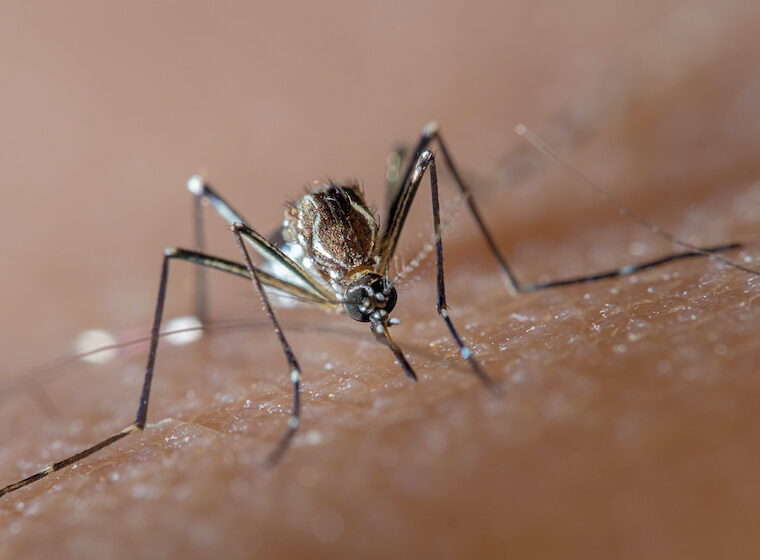Mosquitoes carrying dangerous dengue viruses have a strange substance in their saliva that makes it easier for them to pass the disease to their human victims, new research from our Mariano A. Garcia-Blanco, MD, PhD, reveals.
Dengue is a longstanding problem in tropical parts of the world, but it has made its way to the Southern United States and Europe in recent years. Its symptoms include fever, nausea and rash -- symptoms that are often mistaken for other diseases. Most people have only mild cases, but about 1 in 20 will develop severe symptoms, including internal bleeding, shock and even death. There is no treatment, and you can get the disease repeatedly.
Dr. Garcia-Blanco's new work helps explain why the disease spreads so easily. He and his collaborators found that mosquito saliva contained not just the expected virus, but a potent conspirator: molecules called sfRNAs that are produced by the virus to blunt our bodies' immune response. That's right: This substance in mosquito spit can actually weaken our ability to fight off dengue infection.
“It is remarkable how clever these viruses are – they subvert mosquito biology to tamp down our immune responses so that infection can take hold,” said Dr. Garcia-Blanco, who joined UVA recently as chairman of the Department of Microbiology, Immunology and Cancer Biology.
He is optimistic that this new understanding will ultimately help us find ways to better prevent dengue: “There is no doubt in my mind," he said, "that better understanding of the fundamental biology of transmission will eventually lead to effective transmission-blocking measures.”
Further, this new discovery may prove relevant for other mosquito-borne diseases, such as Zika and West Nile. “Our findings are almost certainly going to be applicable to infections with other flaviviruses,” Dr. Garcia-Blanco told me. “The specific molecules here are unlikely to apply to malaria, but the concept is generalizable to viral infections.”
